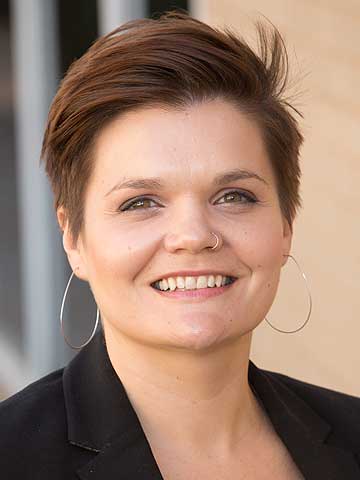SLU to Host Conference Exploring Complexities of Power, Privilege, Oppression
Maggie Rotermund
Senior Media Relations Specialist
maggie.rotermund@slu.edu
314-977-8018
Reserved for members of the media.
Understanding personal, social, and institutional norms and biases can improve the effectiveness of social justice activism. Researchers, educators, clinicians and activists from around the country will participate in a liberation-based healing conference at Saint Louis University in October.
Resist. Unite. Thrive will be held Friday-Saturday, Oct. 12-13, at Il Monastero.
“Because we are committed to fulfilling not only the letter, but the ongoing spirit of the Clock Tower Accords, we are happy to provide support to this conference,” said Jonathan Smith, Ph.D., vice president of diversity and community engagement at SLU. “It’s focus on justice, equity, and healing coincides perfectly with not only the Accords, but also with our greater Catholic Jesuit mission.”

Effective solidarity work requires an understanding of the multiplicity of personal, social and institutional locations that frame identities within historic, economic and political life. The paradigm of liberation-based healing locates these complexities within a societal matrix that shapes relationships of power, privilege, and oppression building on the foundations of critical consciousness, empowerment and accountability.
“The hope of the conference is to bring together unlikely suspects - academics, students, community activists and organizers, and general citizens of the St. Louis metro area - into a larger dialogue about social determinants of health and liberation practices for healing,” said Katie Heiden-Rootes, Ph.D., assistant professor of medical family therapy at SLU and one of the organizers. “In past conferences the experience was generative due to the nature of the dialogue and experiences.”
Some of this year's themes will include:
- Reclaiming LGBTQ Youth Work - Julie Tilsen and Kenden Elliott
- The Interruption of Coloniality: Social Determinants of Health - Jennifer Bello-Kottenstette, M.D., assistant professor of family and community medicine at Saint Louis University School of Medicine, and second-year SLU medical students Abou Kaba, Monica Goodland and Kelsey Kennedy.
- Performance by the Meta Theatre Company
- Creative Pathways to Liberation: Healing Wounds of Coloniality - Lisa Dressner, Diana Melendez, Katie Heiden-Rootes, Ph.D., assistant professor of medical family therapy at SLU, and Rhea Almeida
- Bridging Social Activism, Art and Music with Healing Initiatives - Kira Banks, Ph.D., associate professor of psychology at SLU, and Amber Johnson, Ph.D., associate professor of communication at SLU.
- Emerging Liberation through Decolonizing - Damayanthi Niles and Rebeccah Bennett
- Creative Healing Systems at the Colonial Wound - Elizabeth Vega, Alex Ojeda and Farooq Alihassan
- Black and brown voices: Resisting toxic masculinity and embracing gender fluidity - Richard Marks, interim director of SLU’s Cross Cultural Center; Leonard McKinnis and Jonathan Smith, Ph.D., vice president for diversity and community engagement at SLU.
- Coloring outside of the lines: Sisters speak out on Sexuality - Afrosexology, Bamby Salcedo and Mabel Quinones
- Decolonizing the Academe - Jose Paéz, Willie Tolliver and Deborah Taffa
The event is open to the community. To register, click here or check out the conference Facebook page. Questions can be directed to organizer Katie Heiden-Rootes at katie.heidenrootes@health.slu.edu.
Founded in 1818, Saint Louis University is one of the nation’s oldest and most prestigious Catholic institutions. Rooted in Jesuit values and its pioneering history as the first university west of the Mississippi River, SLU offers nearly 13,000 students a rigorous, transformative education of the whole person. At the core of the University’s diverse community of scholars is SLU’s service-focused mission, which challenges and prepares students to make the world a better, more just place.

















